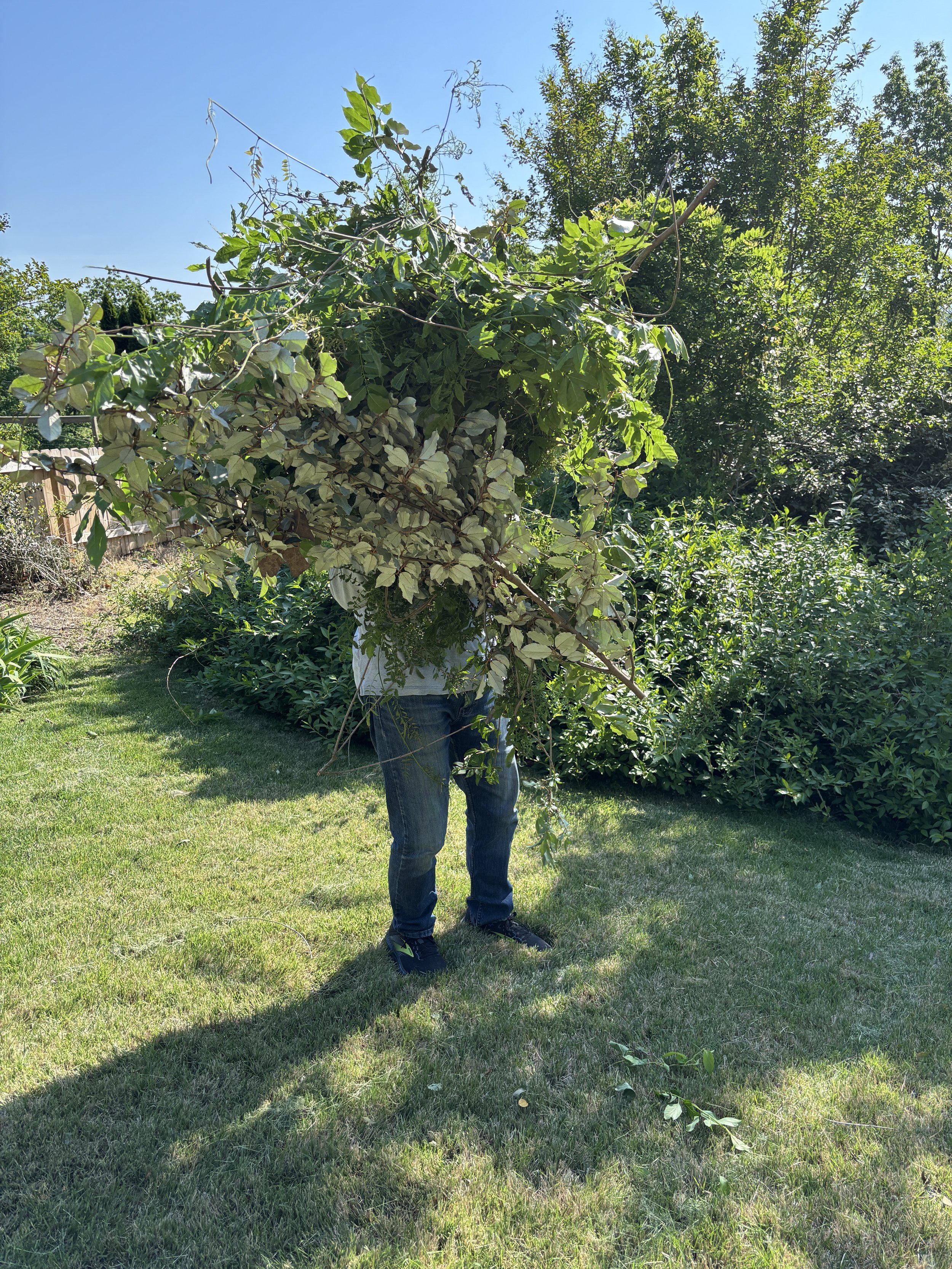Does Birnam Wood Come to Your Dunsinane?
YES, Birnam Wood doth come to my neighborhood!
“I pull in resolution, and begin
To doubt the equivocation of the fiend
That lies like truth: ‘Fear not, till Birnam wood
Do come to Dunsinane:’ and now a wood
Comes toward Dunsinane. Arm, arm, and out!
... I gin to be aweary of the sun,
And wish the estate o’ the world were now undone.”
Macbeth in Shakespeare’s Macbeth, Act V, Scene 5
At this time of year, people in my neighborhood prune their bushes and trees and shrubs mercilessly. Well, in the South, things grow huge, so if we want our yards to look presentable, we really have to lop and shear and clip a little. I often see a neighbor, having accomplished an immense task of trimming, carting to the street what for the life of me looks like Birnam Wood advancing toward me, like Macbeth looking out of Dunsinane.
What an evil prophecy that was! The three destructive Weird or “Weyward” Sisters set a tone of gloom and foreboding for this Shakespearean play. In the very first scene of the play, they make a grand entrance amid thunder and lightning in a “desert place.” They each have lines, and then together chant: “Fair is foul, and foul is fair: Hover through the fog and filthy air.” From the start of the action, there is uncertainty about what is evil and what is good.
Shakespeare ingeniously employs the Witches to deceive Macbeth through duplicity and confusing vagueness. The Sisters prophesy thrice about Macbeth’s future. The last prediction is that he will not die until Birnam Wood moves to Dunsinane hill. Macbeth rejoices at this news, for how could acres of woods travel to his castle?
Ah, but the Witches prevaricate! They express the truth, but not all of it. In the lines quoted above, the woods have indeed changed position and progressed toward Macbeth’s Dunsinane when branches are cut down and used as camouflage by the invading English forces. Soon Macbeth will be conquered. (He should have lived in my neighborhood and he would have saved himself some heartache, seeing how woods are constantly moving about, and he would have been prepared.)
Because of the Sisters and their misleading prophecies, deception is a major message in Macbeth. Or should I call this theme “beating around the bush” or “hedging”?
All seriousness aside, why do we — why do I — prevaricate, speak evasively, or mislead? I very rarely outright lie, but I do sometimes use vague language to soften impact. Many students read “The Ways We Lie” by Stephanie Ericsson to study ethics. In the essay, the author remarks that it is nearly impossible to tell the truth one hundred percent of the time to others. She says, “We lie. We all do. We exaggerate, we minimize, we avoid confrontation, we spare people's feelings, we conveniently forget, we keep secrets, we justify lying to the big-guy institutions.” And I suppose to “avoid confrontation” or to “spare people’s feelings” are mostly the reasons that I sidestep or waffle.
Through my study of the ego over the last few years, I have come to believe that lying is instigated by that inner false self, doing its damnedest to coach me into saving face or providing buffer. I am becoming prepared to do anything I can do to diminish my Ego. Maybe a good plan for me would be to remind myself I am turning into one of the deleterious Sisters when I feel a prevarication coming on.

